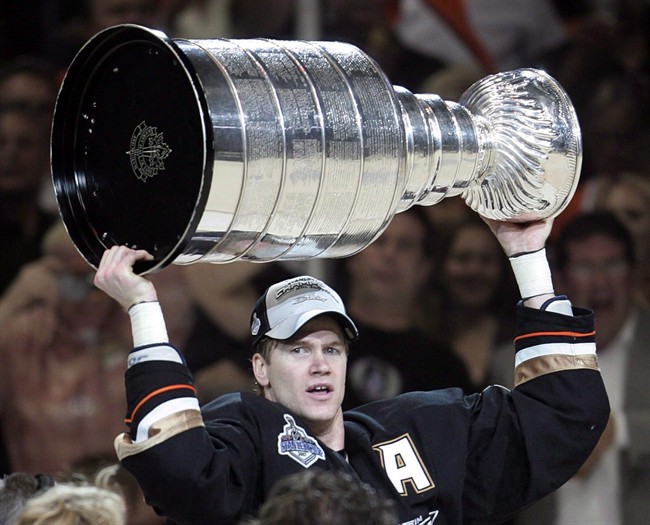
During Hall of Famer career, Pronger punched three teams’ tickets to Cup final
Chris Pronger helped get the Edmonton Oilers get one win away from the Stanley Cup final in 2006, but with his family unhappy living there, general manager Kevin Lowe went about trying to trade him.
At the following NHL draft, Oilers assistant GM Scott Howson put a piece of paper on four teams’ tables. The one on the Anaheim Ducks’ table listed a first-round pick, Ladislav Smid and Joffrey Lupul for Pronger, and immediately GM Brian Burke agreed.
Without enough salary-cap space for the next season, the trade was delayed until July, which extended negotiations.
“(Lowe) said, ‘If I do this, I’m punching your ticket to the finals,’” Burke recalled. “He knew what he was trading to us as an asset.”
For a stretch of his career, Pronger was a human ticket to the Cup final. He helped the Oilers get close in 2006, was a key piece of the Ducks’ championship in 2007 and then led the Philadelphia Flyers to another impressive run to the Stanley Cup final in 2010 before they lost Game 6 to Chicago.
Counting world-junior gold for Canada in 1993 and Olympic gold in 2002 and 2010, Pronger was a winner throughout his career that will culminate in his Hall of Fame induction on Monday. Few players could match the Stanley Cup playoff impact of the big, bruising defenceman.
“Whoever is playing against you, it changes their outlook,” Burke said by phone. “If you’re preparing for a team that has Chris Pronger, your playoff preparation’s very different than if you’re preparing for a team that doesn’t have him.”
The Oilers knew that because coach Craig MacTavish had played with Pronger on the St. Louis Blues. The price of defenceman Eric Brewer and prospects Doug Lynch and Jeff Woywitka was well worth it, and so was the new US$31.5-million, five-year contract.
Edmonton was a budget team, but when Lowe told Cal Nichols the cost, the team’s chairman gave the green light.
“He clearly, knowing the game and knowing what an impact player like that can mean not only to our team at the time but the city of Edmonton bringing in a top-ranked player and still at a relatively young age, it would make the team better and it would really make a statement to people around hockey that we got our sign out: We’re in business,” Lowe said by phone.”
Lowe didn’t think that trade would help the Oilers get all the way to Game 7 of the Cup final. Acquiring Dwayne Roloson for a first-round pick helped, too, but after the goalie’s injury in Game 1 against the Carolina Hurricanes, Pronger easily could’ve been the Conn Smythe Trophy winner as playoff MVP had the Oilers won.
Burke called Pronger Anaheim’s “biggest hurdle” to a Cup, and he was that in the Western Conference final. When Lowe said that Pronger was going to get the Ducks to the Cup final, Burke agreed to send an extra conditional first-round pick to Edmonton.
“We knew it was a high price and a steep price, but to me how can you overpay for Chris Pronger?” said Burke, who’s now president of hockey operations for the Calgary Flames.
With Pronger and Conn Smythe defenceman Scott Niedermayer leading the way, the Ducks cruised through the playoffs and polished off the Ottawa Senators in five games.
“Everybody almost to a man had career years and had fantastic seasons and ultimately that’s what it takes,” Pronger said on the Hall of Fame conference call in June. “We could play the physical game, we could play the finesse game. It kind of fit my personality perfectly.”
Nothing fit Pronger’s personality more perfectly than playing for a team known for the “Broad Street Bullies.” With Pronger’s contract coming to an end, the Ducks looked to trade him and the Flyers tried to acquire him, but the teams couldn’t work anything out at the 2009 deadline.
At the draft, the Flyers followed the same template as the 2006 deal, sending Lupul, a young defenceman (Luca Sbisa) and two first-round picks to the Ducks for an older but still formidable Pronger. Then-GM Paul Holmgren wanted Pronger after being eliminated from the playoffs two straight years by Sidney Crosby, Evgeni Malkin and the Pittsburgh Penguins.
“The opportunity to acquire Chris intrigued us because we thought if we’re going to get to the Stanley Cup finals, we probably got to go through Pittsburgh at some point,” Holmgren said by phone.
Just like in 2006 and 2007, Pronger averaged 30 minutes of ice time and played all situations for the Cinderella Flyers. Leading scorer Daniel Briere said Pronger’s presence was noticeable because “You always felt like everyone was afraid of him.”
Injuries derailed Pronger’s career, and an accidental stick to the eye from Mikhail Grabovski caused concussion problems that forced him to stop playing. Now working in the NHL’s department of player safety, he’ll go into the Hall technically as an active player and technically with the Arizona Coyotes, who acquired his contract over the summer.
But when hockey people remember Pronger’s career, they’ll remember him winning the Norris and Hart Trophies, gold medals and, of course, the Stanley Cup.
“Chris is unique, and not just from the size and physical toughness standpoint,” Holmgren said. “He could handle the puck, he could defend, he could shoot the puck, he could do it all. I think he was one of the greatest defencemen to ever play our game.”
—
Follow @SWhyno on Twitter
Join the Conversation!
Want to share your thoughts, add context, or connect with others in your community? Create a free account to comment on stories, ask questions, and join meaningful discussions on our new site.














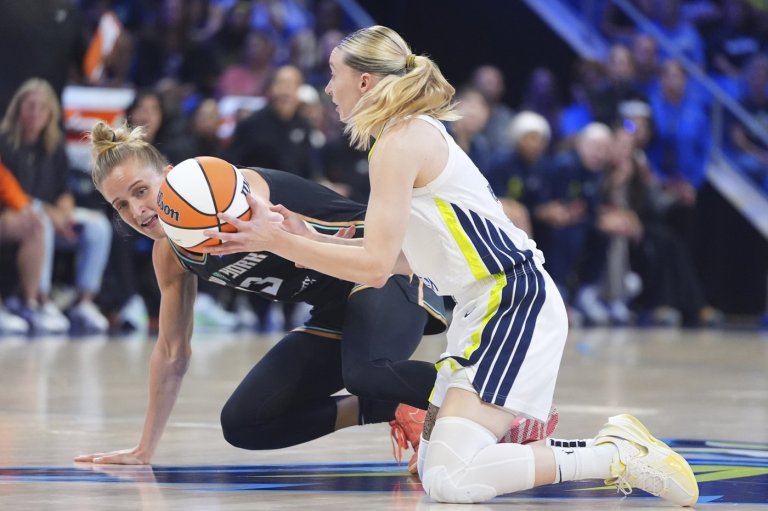
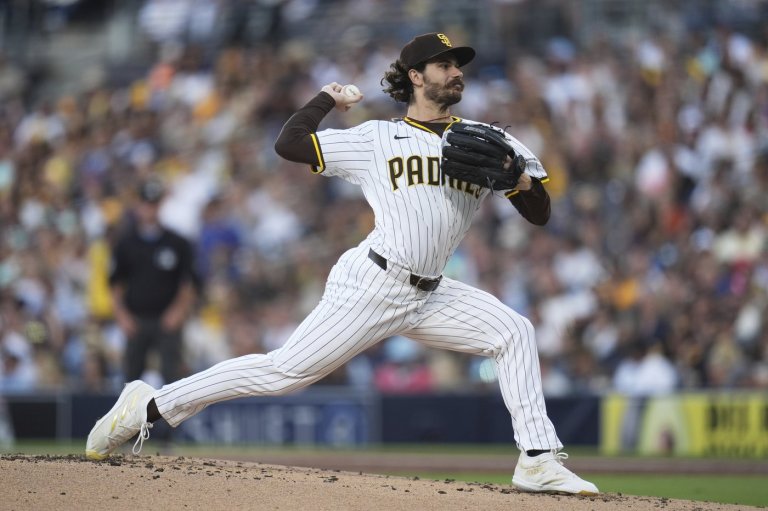
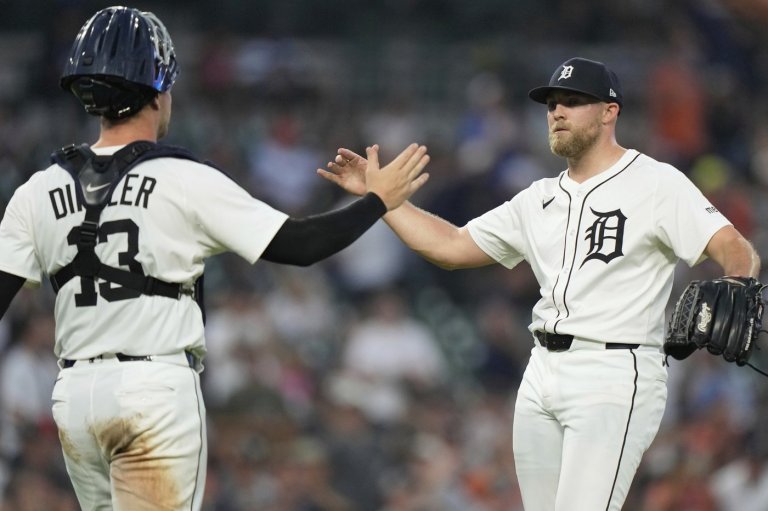
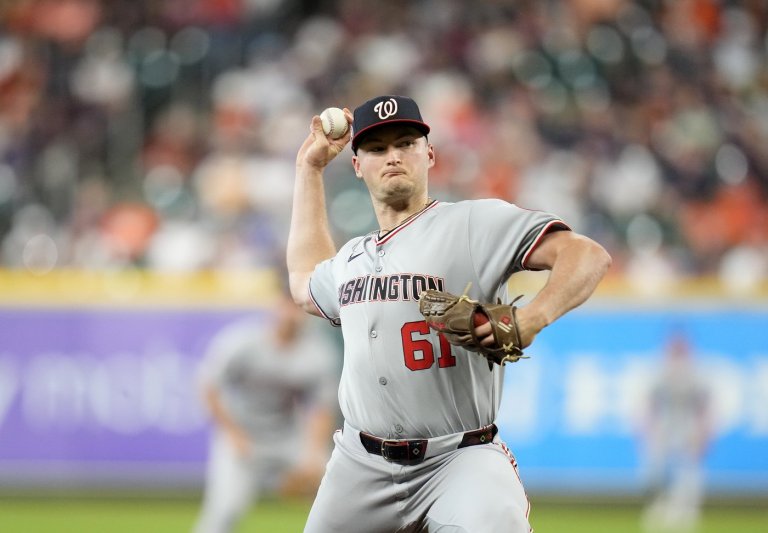

Leave a Reply
You must be logged in to post a comment.